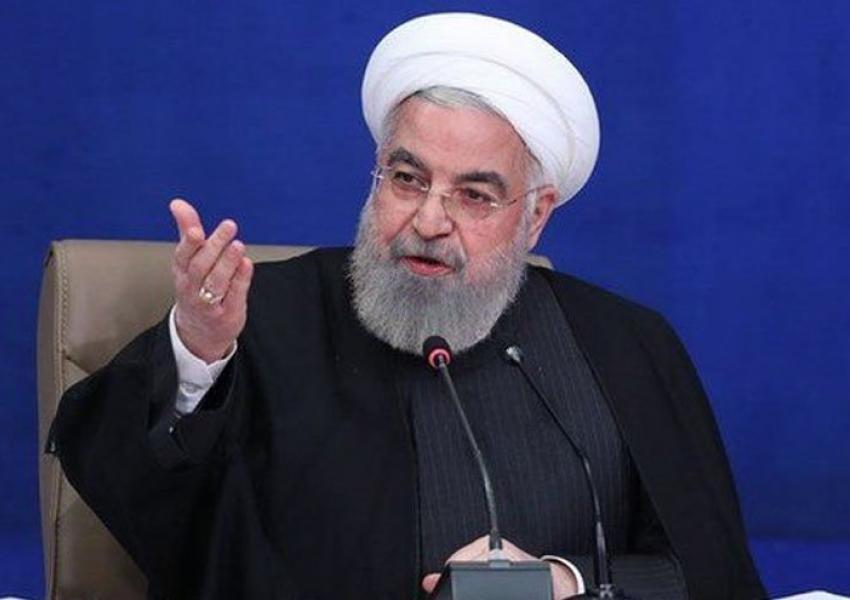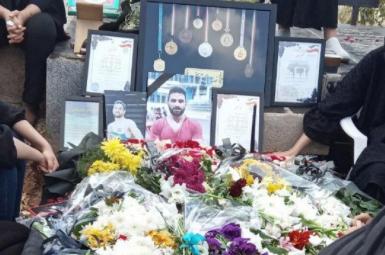
Rouhani Counterattacks 'Martian' Candidates For 'Distortion Of Truth'
Speaking at a weekly cabinet meeting on Wednesday -- noticeably angry and sarcastic -- President Hassan Rouhani launched a counterattack against the five principlist, hardliner candidates in the upcoming presidential poll who have used every opportunity in their debates to attack his government for all the economic and other woes the country faces.
"We should not insult people's intelligence," said Rouhani. The president, who is ineligible to see a third consecutive term, suggested it seemed the five presidential hopefuls had "just arrived from Mars." All, in fact, he said, had held various positions of authority at one time or another.
"The most wrong is being done to the Islamic Republic itself in these elections," Rouhani said. He warned that "distortion of truth" and painting a bleak image of everything would lead anyone to ask what the 1979 Revolution had been for.
While during most of Rouhani's eight years in office Iran has been under sanctions, hardliners usually avoid mentioning that fact and blame all economic misfortune on his administration. They also pretend the government is the sole mover and shaker, not mentioning that real power rests with Supreme Leader Ali Khamenei and the Revolutionary Guard.
Neither was the government responsible for every problem. “In the debates, it was revealed that it is only the administration that is faulty” and other state bodies “blameless,” Rouhani scoffed. Among the seven candidates, Ebrahim Raeesi (Raisi) − believed by many to be favored by Ali Khamenei, the supreme leader − has been chief justice since 2019, while Mohsen Rezaei (Rezaee) has been secretary of the Expediency Council, which arbitrates disputes between different state bodies, since 1997.
Rouhani, whose term in office ends in August, also criticized the principlist candidates for inconsistency in appealing to women, ethnic and religious minorities. He also suggested opponents of Iran’s 2015 nuclear agreement with world powers, the JCPOA, Joint Comprehensive Plan of Action, had changed their tune. "Today everyone is saying we should go back to the JCPOA,” Rouhani said. “All of a sudden this JCPOA became a good thing.”
Rouhani charged that those now advocating “internet freedom” had pestered him during his first term of presidency (2013-17) to block various websites. "Praised be God, they are all saying they are advocates of increasing the internet bandwidth," he said. The communications minister, Mohammad-Javad Azari-Jahromi, was prosecuted in January for refusing to implement an order from the state cyber regulation council to filter some websites.
In both presidential debates, the five principlists – Amir-Hossein Ghazizadeh-Hashemi, Saeed Jalili, Raeesi, Rezaei, and Zakani – criticized the government over rising liquidity, high inflation and alleged economic incompetence. They rounded on fellow candidate Abdolnaser Hemmati, the former central bank governor, as responsible for government policy and mismanagement.
In the second debate Zakani blamed the government for Iran’s falling population growth rate, which has sparked fears that Iran will have one of the world’s highest percentages of old people within decades. Zakani promised his government would provide insurance for families needing fertility treatment and would facilitate marriage to encourage population growth.









